Most of us try to fix small plumbing hiccups ourselves, but some problems need a professional fast. Ignoring them can lead to water damage, higher bills, and even mold. So, how do you know when it’s time to hang up the wrench and call a plumber?
Steady water stains or damp patches. If you see brown spots on walls, ceilings, or floors, water is likely seeping behind the surface. The source could be a hidden pipe leak that only a plumber can locate and repair.
Sudden loss of water pressure. A big drop in pressure across all taps often means a burst pipe or a serious blockage in the main line. Turning the taps on and off won’t fix it; you need a professional to diagnose the issue.
Continuous running toilet. A toilet that never stops running wastes dozens of gallons a day and spikes your water bill. The flapper or fill valve may be broken, and a plumber can replace the part quickly.
Clogged drains that won’t clear. If a sink, tub, or shower drain stays slow after trying a plunger or chemical cleaner, the blockage might be deeper than a surface clog. A plumber has tools like a drain snake or hydro‑jet to clear it without damaging pipes.
Unusual noises. Gurgling, banging, or whistling sounds from pipes often indicate air trapped in the system or a loose pipe. These noises can turn into leaks if not addressed.
Turn off the main water supply if you suspect a major leak. This stops further damage and makes the plumber’s job easier.
Gather information: note the exact location of the problem, when it started, and any recent work or renovations. The more details you give, the quicker the plumber can pinpoint the issue.
Clear the area around the affected fixture. Move furniture, rugs, and valuables away so the plumber has room to work and you avoid additional water damage.
Check for simple fixes you might have missed. Sometimes a loose faucet handle or a clogged aerator is the culprit. If you’ve already tried these, let the plumber know.
Finally, keep an eye on your water meter. If the reading keeps climbing while everything is off, you likely have a hidden leak that needs immediate attention.
Knowing these signs helps you avoid costly repairs and keeps your home safe. When in doubt, give a licensed plumber a call – it’s better to be safe than sorry.
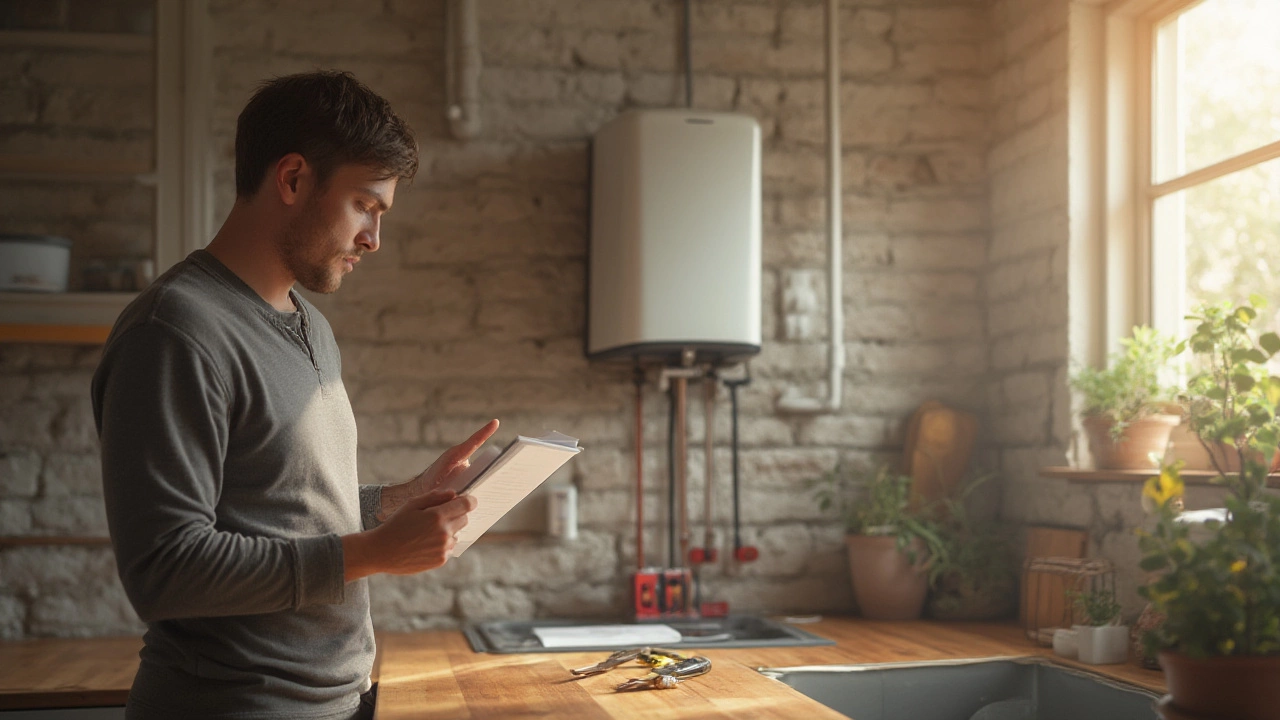
Thinking of fixing your own water heater? Learn when DIY is safe, common problems, money-saving tips, and when to call a pro.
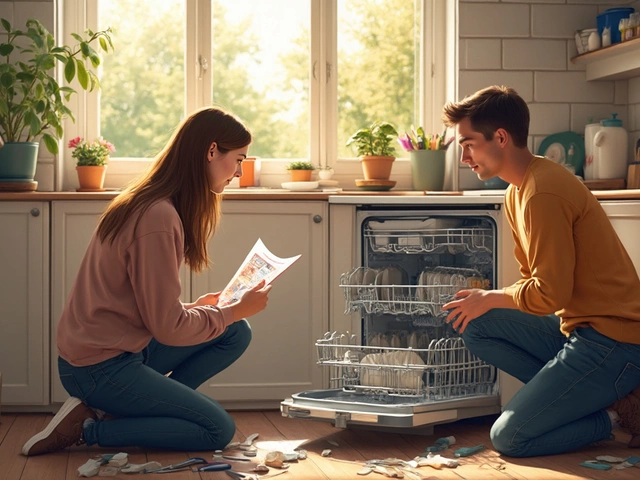
When your dishwasher starts acting up, a quick, accurate diagnosis can save you from bigger headaches and pricey repairs. This article walks through simple methods to spot dishwasher problems, from weird noises to stubborn leaks. You'll learn what to check first, how to tell if it's a DIY fix, and when it's time to call in a pro. Handy tips and real-life examples make this guide easy to follow, even if you're not a born handyman. Don't let a small hiccup become a kitchen disaster — know what to look for and act fast.
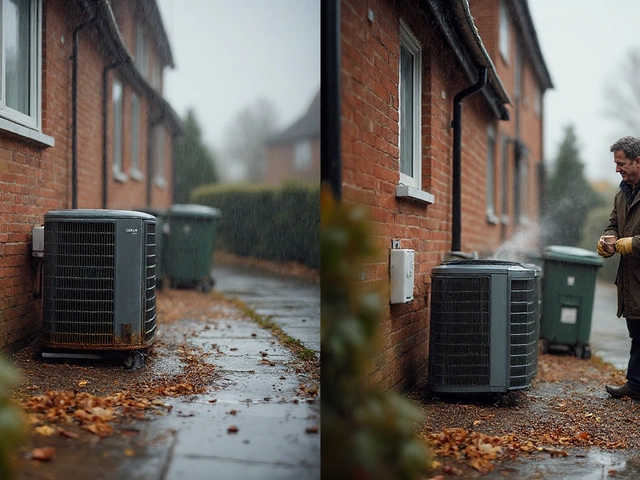
Real UK lifespan for air vs ground source heat pumps, what shortens or extends life, maintenance steps, and a simple repair-or-replace guide you can actually use.
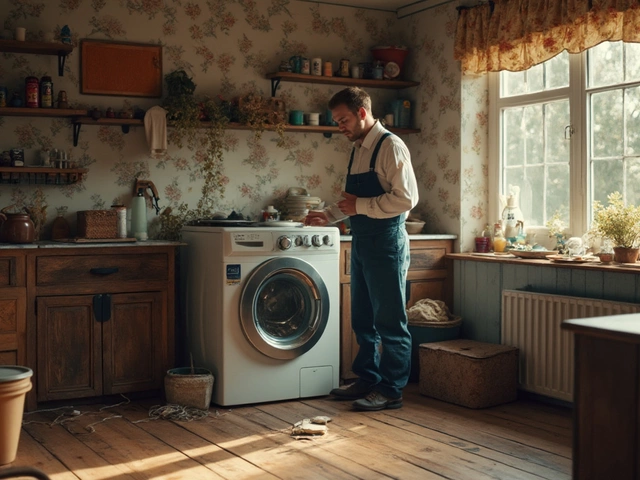
Wondering if fixing your 7-year-old washing machine is worth it? This guide helps you weigh the pros and cons. Consider factors like repair costs, common issues, and the appliance’s lifespan. Find out when it makes sense to repair or replace. Get informed tips to make the best decision for your laundry room.

Fixing an electric stove might seem daunting, but many common issues are surprisingly manageable with a bit of know-how. From understanding why the burners aren't heating to recognizing if a problem needs professional attention, this article sheds light on various aspects of electric stove repair. Whether you're dealing with strange noises, faulty wiring, or a completely inoperative oven, we explore what’s usually repairable and what might require a replacement. With practical tips, learn to troubleshoot and potentially save on costly service calls.
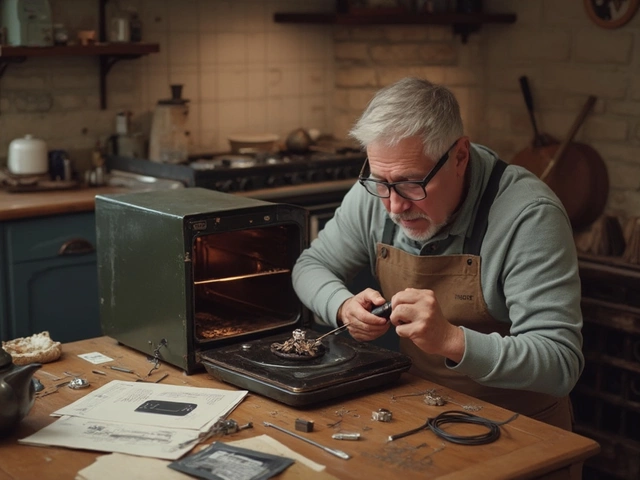
Oven troubles can throw a wrench in your meal plans. From a faulty heating element to problematic door hinges, diagnosing oven issues doesn't have to be daunting. This guide helps you identify and address common electric oven problems. Learn when a DIY fix is safe and when it's time to consult a professional. Simple steps and practical tips get you on your way to a working oven.